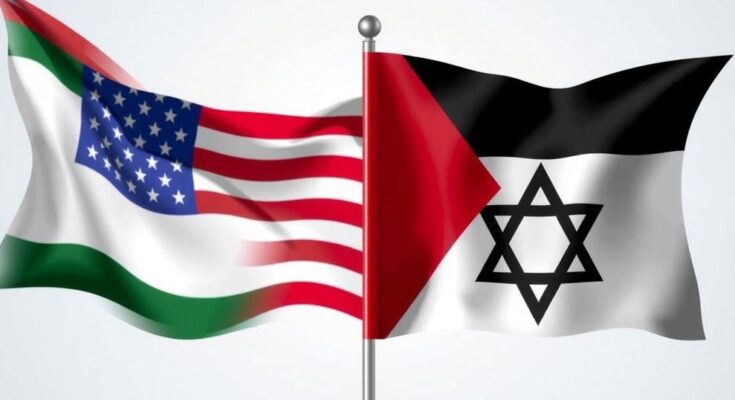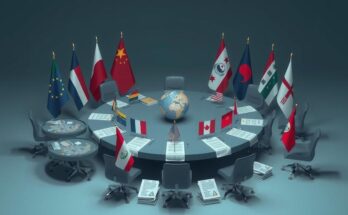The UAE seeks to establish a provisional governance model in post-war Gaza alongside the US and Israel. The discussions emphasize the need for a reformed Palestinian Authority to manage reconstruction, although Israel remains hesitant due to its disagreements with the current PA structure. Ongoing talks include various governance options while addressing security concerns related to Hamas and potential military involvement. Reconstruction efforts will require substantial international support and cooperation.
The United Arab Emirates (UAE), in collaboration with the United States and Israel, is engaged in discussions regarding the establishment of a provisional administration for post-war Gaza. This initiative aims to provide interim governance, security, and reconstruction support until a reformed Palestinian Authority (PA) can assume full control. Several diplomats have indicated that these talks are in informal stages, lacking a concrete model or formalized proposal.
Emphasizing their desire for reform, UAE officials insist on the need to empower the PA under a revitalized leadership capable of governing Gaza, the West Bank, and East Jerusalem. However, such changes face resistance from Israel, particularly Prime Minister Benjamin Netanyahu, who has expressed reluctance toward allowing the PA in its current state to govern Gaza, citing issues with its political framework. Diplomatic efforts continue as the United States seeks viable paths forward, with a State Department spokesperson confirming ongoing discussions with partners regarding governance options.
Furthermore, the potential introduction of private military contractors into Gaza’s post-war environment has raised concerns among Western nations due to allegations against such groups regarding human rights violations. The UAE’s proposal highlights the complexity of the situation, as Israel desires Emirati involvement in reconstruction while simultaneously expressing opposition to the current PA governance structure. This juxtaposition illustrates the delicate balance of regional politics and security concerns following the extensive conflict in the area that has resulted in harsh conditions for Gaza’s restoration.
With an estimated reconstruction cost running into billions of dollars, substantial international support is essential. As the discussions unfold, both the UAE and the United States aim to foster a plan that ensures stability and a credible future for Palestinians, while also addressing Israel’s security concerns regarding Hamas, an organization both nations regard as a destabilizing force in the region. The urgency for a ceasefire and the restoration of order in Gaza remains paramount as leaders navigate these intricate negotiations.
The discussions concerning governance in post-war Gaza emerge against the backdrop of a protracted and devastating conflict, which has seen the destruction of infrastructure and a humanitarian crisis in the region. The Palestinian Authority, established under the Oslo Accords, has faced significant challenges, losing influence and control to Hamas in Gaza since 2007. The current geopolitical environment necessitates a rethink of Palestinian governance, with international stakeholders emphasizing reform as central to restoring stability. The UAE’s unique position, given its ties to both the US and Israel, offers a potentially influential role in shaping future governance frameworks, despite existing tensions around PA legitimacy.
The UAE’s engagement in talks with the US and Israel regarding governance in post-war Gaza underscores the complexities of Middle Eastern politics, particularly in the aftermath of conflict. Calls for reform within the Palestinian Authority and discussions involving the introduction of private military contractors reflect both urgency and caution as stakeholders seek feasible solutions to restore order and facilitate reconstruction. The successful navigation of these negotiations will be critical in determining the future stability of the region and the viability of Palestinian statehood.
Original Source: www.jpost.com




